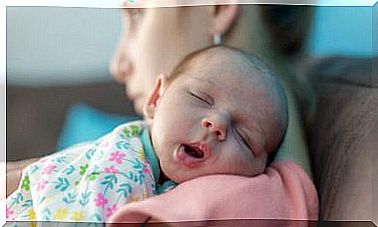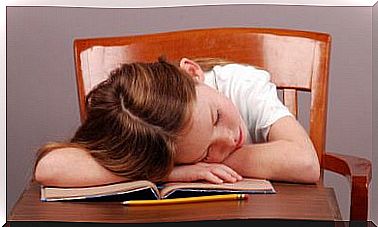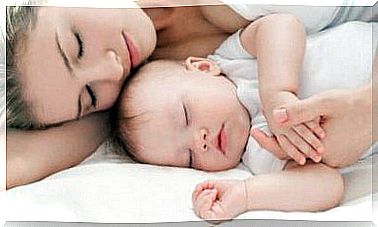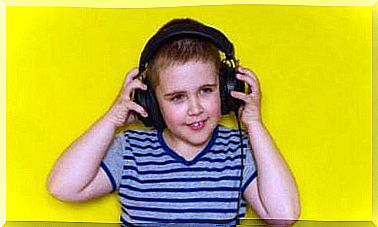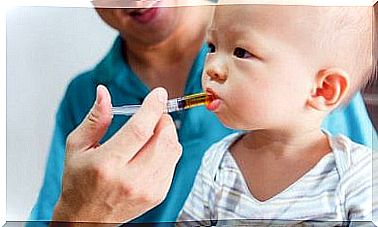What Should I Do If My Child Lies Face Down While Sleeping?
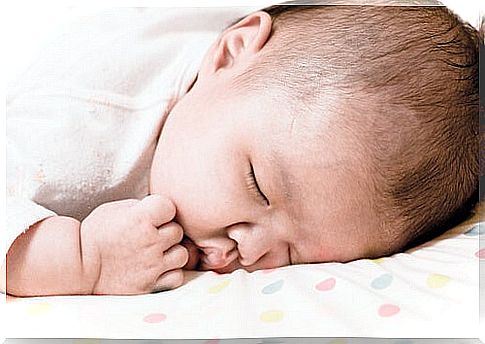
There are many mothers and fathers, especially if they are their first child, who wonder what to do when the baby lies face down while sleeping. Is this a dangerous position that poses risks to your health?
You leave him in the crib for five minutes and he lies face down while he sleeps. If in the case of your baby this scene is repeated often, you will need to monitor his sleep more closely. Doctors associate this posture with sudden infant death syndrome.
It is estimated that around 10,000 children worldwide die from such events each year. A fit of vomit is sufficient to cause asphyxia and compromise the respiratory capacity of the infant. Babies from one to four months are the most vulnerable.
However, the question of the posture our little ones take while they sleep is much more complex than it may seem at first glance. Fortunately, there are some preventative measures we can take to keep the little ones in the house safe.
What is Sudden Infant Death Syndrome?
The acronym SIDS (from the English Sudden Infant Death Syndrome ) indicates the unexpected death of children under the age of one year, when they are still in excellent health. It is also commonly referred to as “cot death” and, for the scientific community, it represents an unsolved mystery.
In most cases, autopsies are unable to show the cause of the baby’s death. Even if the theories on this phenomenon are unanswered, specialists believe that there are triggers that cause these events.
The more complex theory suggests that the cause of everything is constituted by an anomaly in the micro-awakenings of the victims. Nonetheless, some specialists claim that choking may be favored by certain external circumstances. Sleeping face down could be one of them.
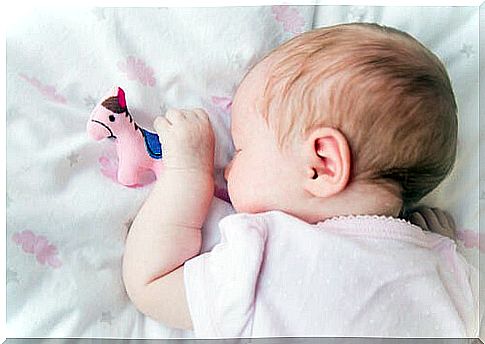
Babies aged one to four months should be supervised overnight to avoid these unwanted episodes. It is not a good habit to leave the baby unnoticed simply because he does not cry.
The most vulnerable group of babies are infants up to four months of age. However, it is best to check the postures of babies up to the first year of age. When testing babies, nighttime checks are usually done to make sure everything is in order.
What to do if the baby lies face down when sleeping
People who argue that co-sleeping is valid say that active surveillance is one of the benefits provided by this family habit. In practice, the night check-up is the best strategy for parents to avoid SIDS.
If the baby lies face down while sleeping, the correct attitude might be to change his position from time to time. In this way we will avoid dangerous and uncomfortable postures in moments when the baby does not yet exercise complete dominion over his body, over sleep and his movements.
When the baby lies face down while sleeping, alternate positions. Creating the habit of having your baby sleep on his stomach or lying on his side is a great alternative.
Some parents prefer to place them face down in the hope that the baby will sleep soundly. However, this is not recommended during the first months of life.
Another good solution is to place the babies face up with their heads turned to the side. In this case it will be a good idea to make some changes in the position of the neck, to avoid them pain due to poor posture. The fetal position is much more advisable, if we can accommodate them in this way.
In addition to all this, another important issue is that, during the first three months, we must also pay attention to the formation of the infant’s head. If we place it face up for more than three hours, the risk of plagiocephaly also increases.
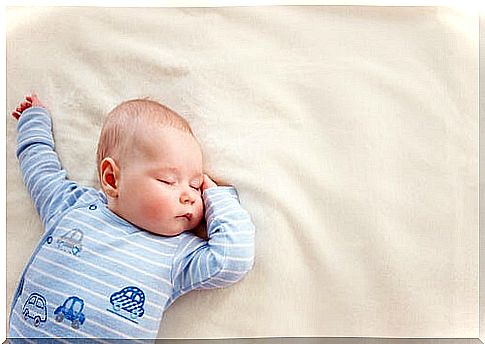
Other precautions we can take to avoid SIDS
- If the baby develops severe gastric reflux, the mattress can be tilted about 45 degrees.
- We must avoid wrapping the baby in sheets and be careful that he does not do it himself unintentionally.
- Toys in the crib can cause asphyxiation and poor posture. The best thing is to take them out of the crib during naps.
- Excess clothing and temperature rises can cause problems for little ones. The correct attitude is to cover them without exaggerating the thickness of the fabrics.
- We must avoid the presence of toxic substances inside the room, such as paints and poisons for disinfestation.
Once they are one year old, our little ones will have more control over their awakening and their movements. In a short time, we will realize that it will be they themselves who look for their postures and get up in the presence of any problem.
It will never be excessive to check if we can hear the baby’s breath when it is asleep. A little movement or the sound of air passing through his mouth will be enough to let us know that everything is fine. These precautions will be essential to ensure the health of newborns during their first months of life.
